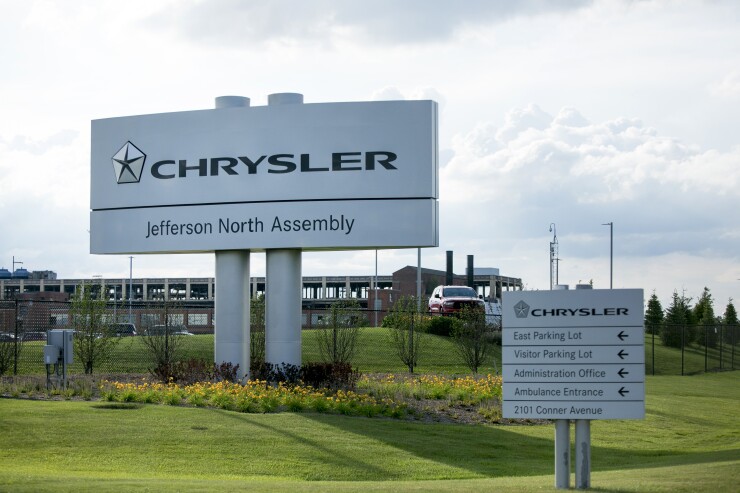Two developments that could bring an extra 10,000 auto industry jobs to Detroit represent a credit positive for the city as it continues to rebuild post-bankruptcy, according to Moody’s Investors Service.
Fiat Chrysler announced plans to invest $4.5 billion and add 5,000 jobs at two manufacturing sites in Detroit. Ford Motor Company has plans to redevelop Michigan Central Station and to create a tech campus that will create up to 5,000 jobs.

The developments are significant because the city remains heavily dependent on economically sensitive revenues including income tax receipts, Moody’s said.
“Adding or maintaining auto jobs is critical for Detroit, given income taxes are its largest revenue source, comprising over a quarter of operating revenues in fiscal year 2018,” Moody’s said. “Strong growth in income tax receipts has been a crucial ingredient in the city's recent robust financial performance, which is evidenced by multiple years of surpluses resulting in the city amassing reserves equal to nearly 50% of revenues.”
Moody’s said that the developments also give the city an edge over other Midwest cities whose economies are tied to the auto industry. “The city is demonstrating a competitive advantage for auto industry employment," Moody’s said.
The job additions are part of FCA's plans to invest $2.5 billion at two sites in Detroit: the Mack Avenue Engine Complex and Jefferson North Assembly Plant. FCA also plans to add approximately 1,500 jobs and invest $2 billion at other Michigan sites near Detroit. In total, the company is investing $4.5 billion into the new plant and five existing plants in the metro Detroit area.
Fiat Chrysler said it would reopen a shuttered engine plant in Detroit and convert another in the same complex into a future assembly plant for the Jeep Grand Cherokee and a new, three-row, full-size Jeep SUV and plug-in hybrid models for all. The plant would be the city’s first new car factory since the 1980s.
Mayor Mike Duggan made jobs and workforce development a main focus of his State of the City address Tuesday.
"We decided to go after the motherlode of middle-class jobs," Duggan said in the address.
The city is working to assemble 200 acres that FCA needs for parking and other uses. Detroit has 60 days to deliver on its commitments outlined in a memorandum of understanding. Duggan said in the address that it will take some “heavy lifting,” but he’s confident the deal will get done.
“We’ve got to get the land — we can’t force anybody — we’ve got to have clear title, we’ve got to solve our environmental issues,” Duggan said. “And [then] FCA is going to agree to add 5,000 jobs at $58,000 a year.”
Ford plans to redevelop Michigan Central Station and several nearby properties in Detroit's Corktown neighborhood to create a tech campus. Ford projects the campus, which is slated for completion by 2022, will create up to 5,000 new jobs.
At the end of last year General Motors Co. announced plans to close its Detroit-Hamtramck Assembly plant by 2020. Moody’s said in the report that FCA's planned job additions will far exceed the number of jobs that will be lost at GM.
Duggan delivered his fiscal 2019-2020 budget proposal on Thursday. The budget is the first to be delivered since exiting active state oversight in 2018. Duggan said in his presentation before city council that the Financial Review Commission hasn't gone away, it's gone dormant. “The city needs to look ahead to avoid any deficit, which would trigger the FRC to come back into play,” Duggan said. The state relinquished control of the city’s finances on April 30, 2018 three years after Detroit's Chapter 9 exit in December 2014.
The mayor noted the city's projected general fund budget is $1.1 billion and $2.4 billion overall. The city has about $34 million more in revenue this year but expenses will increase by the same amount.
S&P Global Ratings upgraded Detroit to BB-minus from B-plus in February. The outlook is stable. Moody’s rates the city Ba3.
The city issued its first standalone deal since exiting bankruptcy in December. As part of that $135 million transaction the city authorized additional capital projects in the next 18 to 24 months and plans to access the market to fund them.





